High blood pressure, or hypertension, is one of the most common avoidable risk factors for heart disease. Over 1 billion people worldwide have high blood pressure, defined as systolic blood pressure values over 130 mm Hg and diastolic blood pressure over 80 mm Hg. Medications typically decrease blood pressure levels, but lifestyle changes, including dietary modifications, can help lower your blood pressure.
A healthy diet is vital for lowering blood pressure and maintaining ideal levels. Research indicates that adding certain foods to your diet, like those high in nutrients like magnesium and potassium, decreases your blood pressure levels. Here are some foods that can help lower your blood pressure.
Citrus fruits
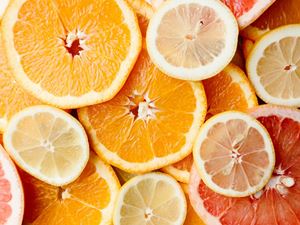
Citrus fruits, like lemons, oranges, and grapefruit, might have significant blood-pressure-lowering effects. They have plenty of minerals, vitamins, and plant compounds to keep your heart healthy by decreasing heart disease risk factors. A five-month study involving Japanese women showed that drinking lemon juice daily and walking was linked with SBP reductions, an effect researchers credited to lemons’ flavonoid content and citric acid. Studies have also revealed that drinking grapefruit and orange juice can help reduce blood pressure. However, grapefruit and its juice can interfere with blood-pressure-lowering medications, so talk to your doctor before adding it to your diet.
Salmon.
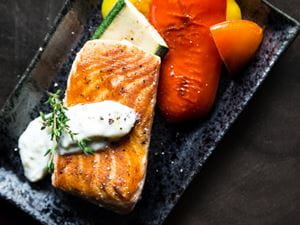
Fatty fish, like salmon, are a great source of omega-3 fats, which have substantial heart health benefits. These fats help reduce blood pressure levels by decreasing blood-vessel-constricting compounds called oxylipins and reducing inflammation. Research has correlated higher omega-3-rich fatty fish intakes to lower blood pressure levels. A study of 2,036 healthy people showed that people with high blood levels of omega-3 fats had lower SBP and DBP than those with the lowest. Higher omega-3 intake has also been linked to a lower risk of hypertension.
Swiss chard.
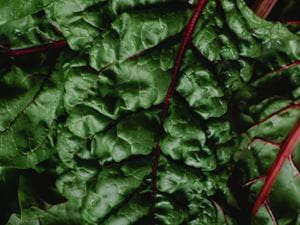
Swiss chard is a leafy green packed with blood pressure-regulating nutrients like magnesium and potassium. One cup of cooked chard supplies 17 and 30 percent of your daily magnesium and potassium needs. Magnesium is vital for blood pressure regulation, helping reduce blood pressure through several methods, including acting as a natural calcium channel blocker. This blocker helps stop calcium from moving into the heart and arterial cells, permitting blood vessels to relax.
Pumpkin seeds.
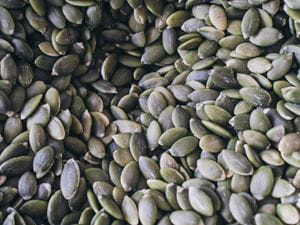
Pumpkin seeds might be tiny, but they pack a punch regarding nutrition. They’re an intense source of nutrients essential to blood pressure control, like potassium, magnesium, and arginine, an amino acid necessary for producing nitric oxide, which is needed for blood pressure reduction and blood vessel relaxation. Pumpkin seed oil is also a natural remedy for high blood pressure. A study of 23 women found that adding 3 grams of pumpkin seed oil daily for six weeks reduced SBP.
Beans and lentils.
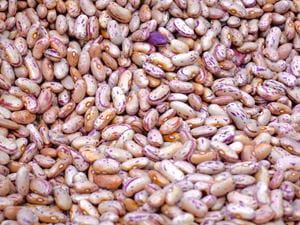
Lentils and beans are full of nutrients that assist with blood pressure regulation, like potassium, magnesium and fiber. Several studies show that eating lentils and beans can help lower your blood pressure. A review of eight studies that included 554 people showed that when swapped for other foods, lentils and beans reduced SBP and average blood pressure levels in people without and with hypertension.
Berries
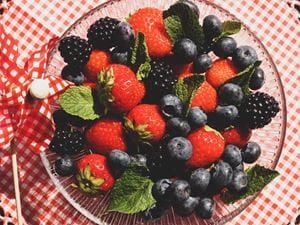
Berries have been linked with numerous health benefits, like their potential to lower heart disease risk factors like high blood pressure. Berries are a great source of antioxidants like anthocyanins or pigments that give berries their radiant color. Research indicates that anthocyanins can increase nitric oxide levels in the blood, reducing the creation of blood vessel-restricting molecules, which can help lower blood pressure levels. However, more human research is needed to confirm these methods. Raspberries, blueberries, and strawberries are some berries linked with blood-pressure-lowering effects.
Carrots.
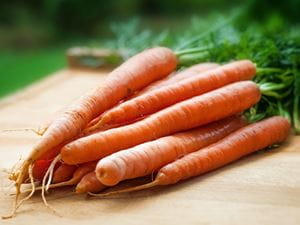
With their sweet, crunchy, and nutritious disposition, carrots are a common vegetable in many people’s diets. They are high in phenolic compounds, like chlorogenic and caffeic acids, which help relax blood pressure levels and decrease inflammation, helping lower your blood pressure levels. You can eat carrots raw or cooked, but eating them raw could be more beneficial for reducing blood pressure levels. A study of 2,195 people aged 40 to 59 discovered that eating raw carrots was correlated with lower blood pressure levels.
A healthy diet and other lifestyle changes can significantly lower your blood pressure levels and decrease your risk for heart disease. Research says that adding specific foods to your diet, like berries, beans, and carrots to your snacks and meals can help you reach and preserve optimal blood pressure levels.
